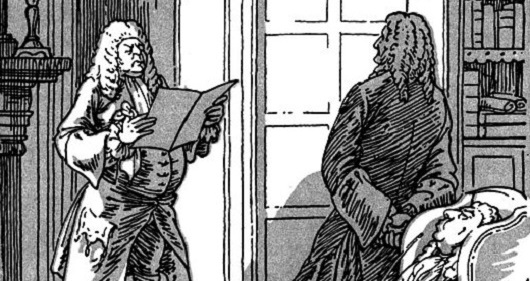
About Andrew Cusack
 Writer, web designer, etc.; born in New York; educated in Argentina, Scotland, and South Africa; now based in London.
Writer, web designer, etc.; born in New York; educated in Argentina, Scotland, and South Africa; now based in London. read more
News
Blogs
Reviews & Periodicals
Arts & Design
World
France
Mitteleuropa
Knickerbockers
Argentina
The Levant
Africa
Cape of Good Hope
Netherlands
Scandinavia
Québec
India
Muscovy
Germany
Academica

Recent Reads
Few things are more enjoyable then a good old-fashioned take-down, and philosopher John Gray delivers the goods with this wonderful review of the latest book by the psychologist and “popular science” writer Steven Pinker, a “feeble sermon for rattled liberals”.
Meanwhile, the inestimable Pee Eee Gee – Pascal-Emanuel Gobry – argues that France’s reigning concept of laïcité is of much more recent vintage then its proponents claims.
The 1905 law ended public subsidies for religious institutions, but instituted no legal or cultural rule against public expression of religious values. So, why are we now told differently?
My only extremely tenuous brush with celebrity is that my Irish teacher (go raibh maith agat, Áine!) happened to tutor on-set the actress who played Luna Lovegood in the Harry Potter films. Among the sort of Dublin people who manage to continually drop into conversation that they went to Trinity, there is a (further) irritating tendency to look down upon the Irish language and use disdain for it as yet another attempt to assert their fragile sense of social superiority.
It is a contemptible and false dichotomy to think that if you appreciate Georgian architecture or Henry Grattan you can’t appreciate the Irish language or Éamon de Valera. Tiresome boors will always try to sell us such dichotomies, but we will not have them.
Paltry though my attempts to learn more Irish have been, what little I’ve picked up has been extremely rewarding and given better insight into the way English in Ireland is spoken and written. (Do the experts still call it “Hiberno-English”, I wonder?) It’s been a pleasure over the past however-long to see Michael Brendan Dougherty – one of America’s most talented journos and a fellow Irish New Yorker – share his own experiences with the Irish language.
MBD’s most recent books column at National Review explores two books concerning Irish, and moves from the Gaeltacht of the mind to a book about Leopolis/Lwów/Lviv/Lemberg in Galicia. City of Lions, incidentally, is published by Pushkin Press, which has proved an almost inexhaustible source of good reads (e.g. Oliver VII).
The recent read I most enjoyed, however, is Gordon Campbell’s delightful combative romp through English translations of the Bible, Making God Speak English. The professor sheds particular light on the thriving culture of pre-Reformation translations of holy writ in the vernacular in general and the English tongue in particular, bursting numerous bubbles of Protestant mythology along the way.
Par example:
Wyclif is a seminal figure in the long road to the catastrophe of the Reformation, with its legacy of decades of wars of religion and centuries of interconfessional animosities that live on in the twenty-first century, but the idea that he was the first translator of the complete Bible into English is a myth. The Middle English Bible, as Henry Ansgar Kelly calls it in his recent reassessment, was in Professor Kelly’s authoritative view neither the work of Wyclif nor of his Lollard followers, but was rather a wholly orthodox Bible with origins in the University of Oxford. It was immensely popular, because it enabled readers and their listeners to understand the readings from the Bible that they heard at Sunday Mass.
I learnt much from Prof. Campbell’s enjoyable submission and you might too.
Search
Instagram: @andcusack
Click here for my Instagram photos.Most Recent Posts
- In the Courts of the Lord February 13, 2025
- American Exuberant February 10, 2025
- Crux Alba Journal Launch February 10, 2025
- The Year in Film: 2024 February 10, 2025
- Articles of Note: 27 January 2025 January 27, 2025
Most Recent Comments
- on When an American aristocrat meets a European Grand Duke
- on The Year in Film: 2024
- on Jesuit Gothic
- on The Borough Synagogue
- on No. 82, Eaton Square
- on Christ Church
- on The Last Will and Testament of Louis XVI
- on Amsterdam
- on Season’s Greetings from the Seventh
- on Season’s Greetings from the Seventh
Book Wishlist
Monthly Archives
Categories



“readers and their listeners”.
And just when did these reading jamborees occur?
Before, during (heaven forbid) or after Mass?
Something fishy going on here.
I think I’ll stick with the Bibles-untranslated-and-chained-down crowd.
Well every school leaver should have a working knowledge of Latin, Greek, and Hebrew.
Thank you, Andrew, for the link to Campbell and the pointer to Kelly’s The Middle English Bible: A Reassessment.
As one who did leave school with a working knowledge of Latin, Greek, and Hebrew, after my nineteenth year of school (counting from my tenderest years), I can assure you that the Douay-Rheims, when introduced early, will forestall the lonely penury faced by those considering a similar academic background.